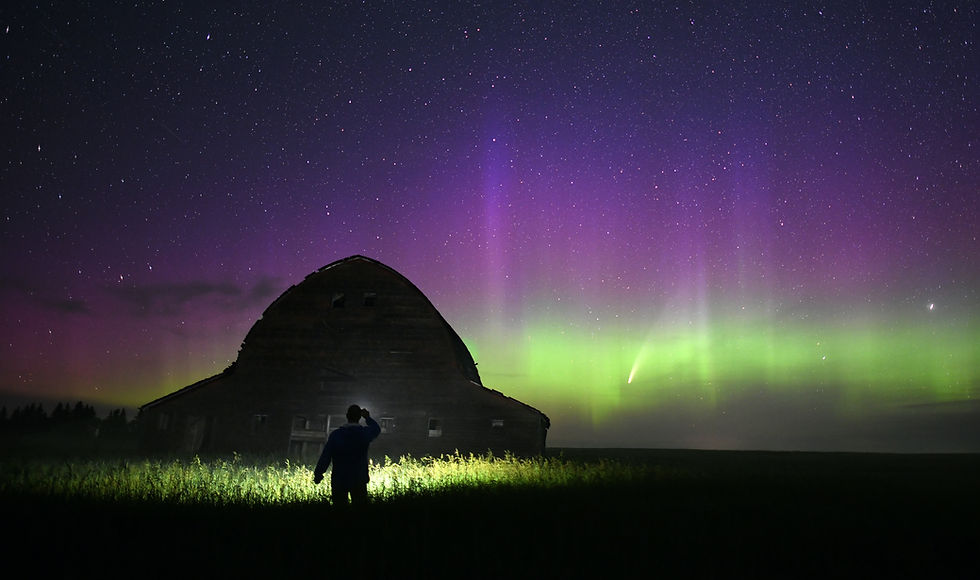Missiology: World Evangelism and Church Planting Movement
- DJ Yeomans
- Sep 27, 2023
- 4 min read
Power encounter
A power encounter is a practical, visible demonstration that the power of God is greater than the power of the spirits worshiped or feared by the members of a given social group or by individuals. A prominent Old Testament example is seen when Elijah challenged the prophets of Baal on Mount Carmel. God visibly demonstrated His supernatural power by lighting the fire on the altar, and as a part of the aftermath, the prophets of Baal were executed (see 1 Kings 18:20-49) (Wagner, 2015, p.270).
I see power encounters playing in the mission of the Church both at home and abroad as a critical component. There are three levels of spiritual warfare, and the most frequently encountered are ground-level spiritual warfare, which deals with casting demons out of an individual; occult-level spiritual warfare, which deals with the demonic forces behind witchcraft, sorcery, Satanism and other organized forms of the occult; and strategic-level spiritual warfare, which deals with confronting the territorial spirits that may control a city, people group or some other social network (Wagner, 2015, p.270).
Peter shares, "Preaching the Kingdom of God must be recognized as an invasion of territories previously held by Satan in his kingdom of darkness. Taking people from darkness to light requires spiritual warfare. Satan does not release his captives without a fight. As in any other kind of warfare, spiritual warfare also involves conflict and casualties (Wagner, 2015, p.300). It is critical to spend time spiritually mapping the area you are called to, working with the spirit-filled individuals of the people group to dismantle the strongholds holding the captives from receiving salvation, freedom and healing; establishing God's Kingdom. Peter and Doris Wagner always taught how important it is to clear the air before sending in the ground troops.
Contextualization
The central missiological issue is that of contextualization. A church is established in one of the world's thne, the Greek word for "nations." In obedience to Jesus, cross-cultural missionaries go out from one ethnos (or nation or people group) to another in order to plant churches. The new people group has its own culture, a distinct form of culture of the sending Church.
In the new cultural context, what aspects of church life will be different? Which theological principles of culture A nonnegotiable and must be maintained in culture B? Which theological principles, on the other hand, need to be reformulated, reworded or refocused in order to communicate true Christain beliefs to a different people group who have a different worldview? Will any behavioural patterns be different on a mission field? What about music, Bible translation, church government? What is essentially cultural, and what is essentially Christian? (Wagner, 2015, pp. 322-323).
These are very detailed questions that take time to work with a culture different from your own. I have been blessed to have incredible Christian believers helping us as we come into their communities to understand their ways, culture, language, and forms of worshipping the Creator. Food is very much a part of the relationship and gifts.
One of the missiological principles is that God took steps at Pentecost to contextualize the gospel, thereby showing that He respects the culture and language of each of the multiple groups gathering at the "Harvest of Festival" - "Pentecost." The method He used was to perform a miracle of language and allow the disciples to speak in the language they had never learned.
The first principle of cross-cultural evangelism is to present the message of Christ in cultural forms appropriate to the new people groups. These questions are the most crucial issues cross-cultural missionaries will confront if their work is going to be everything God wants it to be (Wagner 2008, pp. 67).
Peter shares, "To put it bluntly, missiological ineptitude at the point of applied contextualization can result in lost people not being saved who otherwise would be saved" (Wagner 2008, p. 323).
Some of the mistakes that have been made in an attempt to apply contextualization are:
Many missionaries have uncritically superimposed their own highly culture-bound form of Christianity on converts in other cultures, never aware of the fundamental damage they might be doing.
There are differences from community to community regarding churches; this matter of whether the contextualization of the gospel could vary from people group to people group has to be resolved authoritatively and with the utmost clarity.
Theological issues, such as circumcision, may not be an issue for some people groups. Simple believers in local congregations are seldom on the cutting edge of theological disputes. They are usually more interested in hearing how the gospel-accompanied by power encounters, miracles, resurrections from the dead and other outworkings of power ministries - has transformed the lives of individuals and families. They want news of the expansion of the Kingdom of God (Wagner, 2015, pp.324-327).
I have also found that there is mixed fire within the First Nation communities. New age, old traditional occult customs, Catholicism, and Christianity all mixed together. Working with each community, we are sensitive to the Holy Spirit, and we have done our homework regarding the history and the people and their land. We take time with the individuals God has blessed us with to build a relationship with and minister to them first in deliverance, inner healing and the revelation of God's word. We teach them how to cleanse their land and take dominion over their community's territory in strategic-level spiritual warfare, which deals with confronting the territorial spirits controlling their people group. As we go through these steps with them, our relationship grows, and more trust is established, giving the Holy Spirit a greater opportunity to move.
Reference:
P. Wagner (2015). The great transfer of wealth, Financial release for advancing God's Kingdom. Whitaker House, New Kensington, PA.
Author Dr. Jonni Yeomans





Comments